Protein is only good for building muscle. Too much protein can be bad for your kidneys. Whey is the only way for post-exercise protein … If you’re an athlete – or someone working with athletes – looking for nutrition advice on the Internet, you’ll come across many such claims. How do you determine what’s true, what’s misconception and what’s simply a myth?
If you’re Jennifer Sygo, renowned Canadian dietitian and sports nutritionist, you’ll consult the research, the kind of research conducted by Daniel Moore, an associate professor at the University of Toronto Faculty of Kinesiology and Physical Education (KPE) with expertise in protein metabolism and sport nutrition.
“As a practitioner and knowledge translator, I’ve benefited very much from Dan’s research,” said Sygo recently, speaking at the Tanenbaum Institute for Science in Sport (TISS) inaugural conference in September. “His break-through research has had a direct impact on the recommendations I give to athletes, and I’m always pleased to tell them my advice is based on sport nutrition research.”
“Without you, the user, knowledge is really useless,” said Moore, whose presentation on the protein needs of high-performance athletes was one of many heard by the large contingent of researchers, clinicians and practitioners who converged on U of T's Goldring Centre for High Performance Sport for the two-day conference.
Arriving from different corners of Canada and the world, renowned experts shared the stage with early-career researchers to discuss the role of cutting-edge science in advancing athletic excellence, early athlete training and development, the application of wearable tech in novel sports and much more in between.
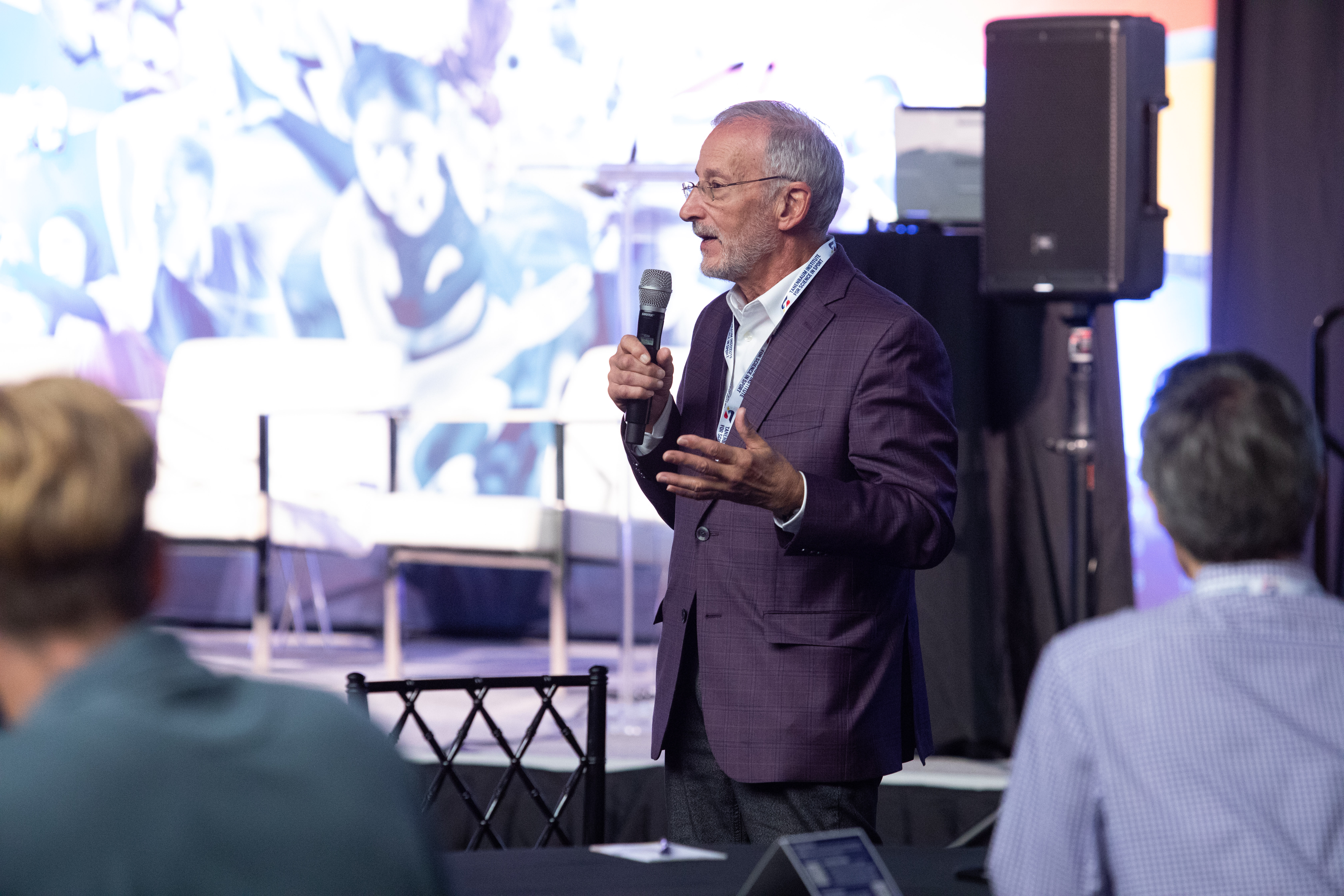
“The conference was an amazing opportunity to enjoy two intense days of experts sharing their accumulated knowledge across a broad spectrum of sport science and sport medicine disciplines – all focused on the wellness, safety and performance of high-performance athletes - right here in the GTA,” said Ira Jacobs, a professor of exercise physiology at KPE and director of TISS. “It’s wonderful to see it come to fruition after only two years of the institute being operational.”
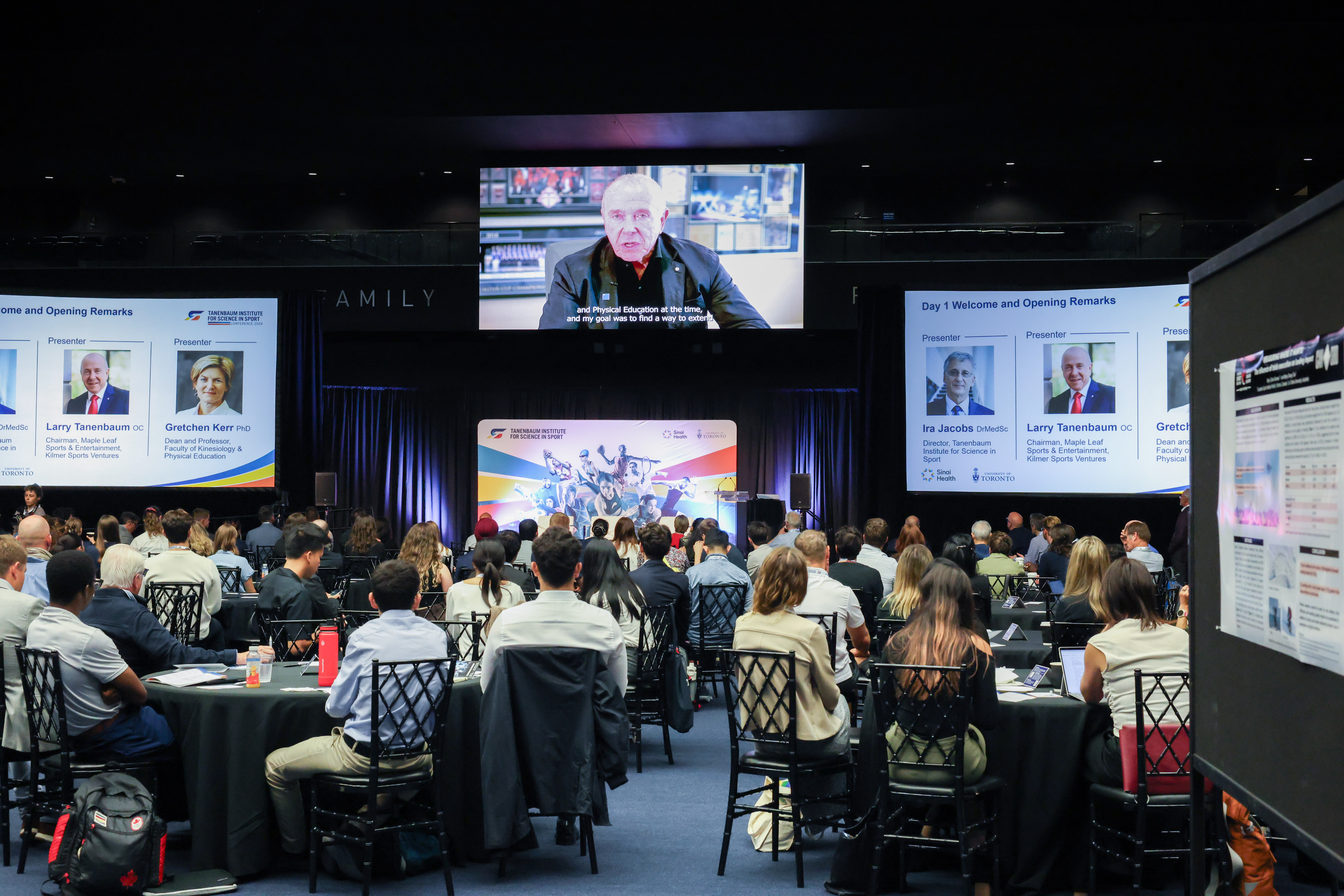
Larry Tanenbaum, chairman of Maple Leaf Sports and Entertainment (MLSE), whose $20-million gift through the Larry and Judy Tanenbaum Family Foundation helped to establish TISS in 2022, addressed the participants of the conference in a recorded message.
“Over the last two years, the institute has not only attracted the attention of prominent sport medicine and sport science experts now working on creative research projects funded through TISS, but also graduate students and post-doctoral fellows, whose research promises to transform the world of high-performance sport,” said Tanenbaum. “Initiatives like this conference are tremendously important in enabling perspectives of some of the world’s leaders in sport medicine and sport science research to be shared with the high-performance sports community.”
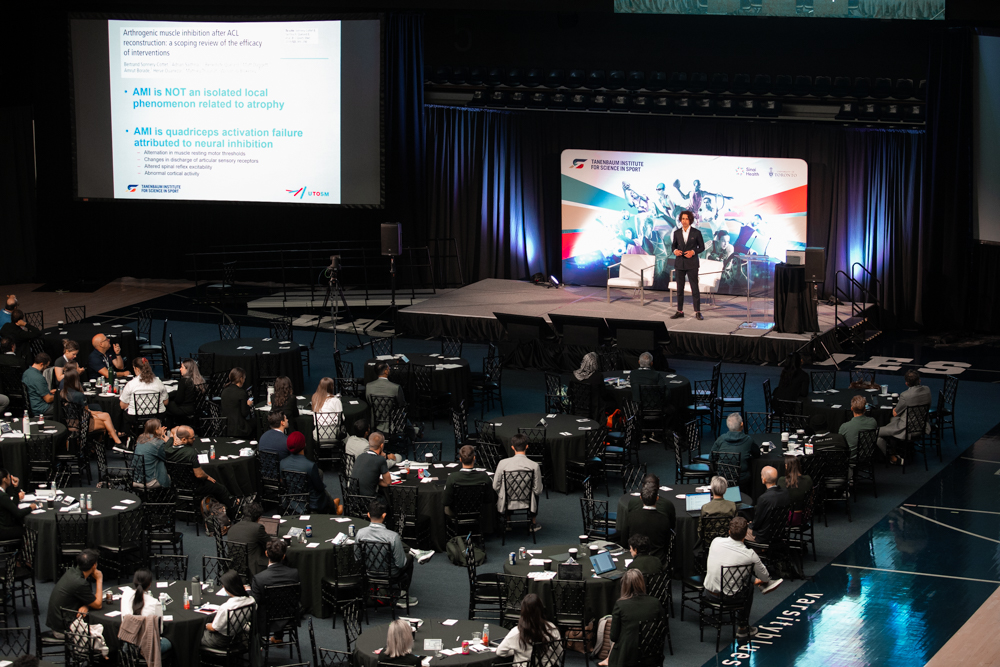
Among those leaders: Associate Professor Jas Chahal from the department of surgery at U of T, who talked about the advances in orthobiologic therapies and regenerative medicine helping injured athletes return to play; Professors Catherine Sabiston of KPE and Tara-Leigh McHugh of the University of Calgary, who addressed inequities in sport and shared their research into psychological considerations of importance for female high-performance athletes; and Michael Hutchison, an associate professor at KPE and director of the concussion program in the MacIntosh Sport Medicine Clinic, who presented on the latest research in sport concussion.
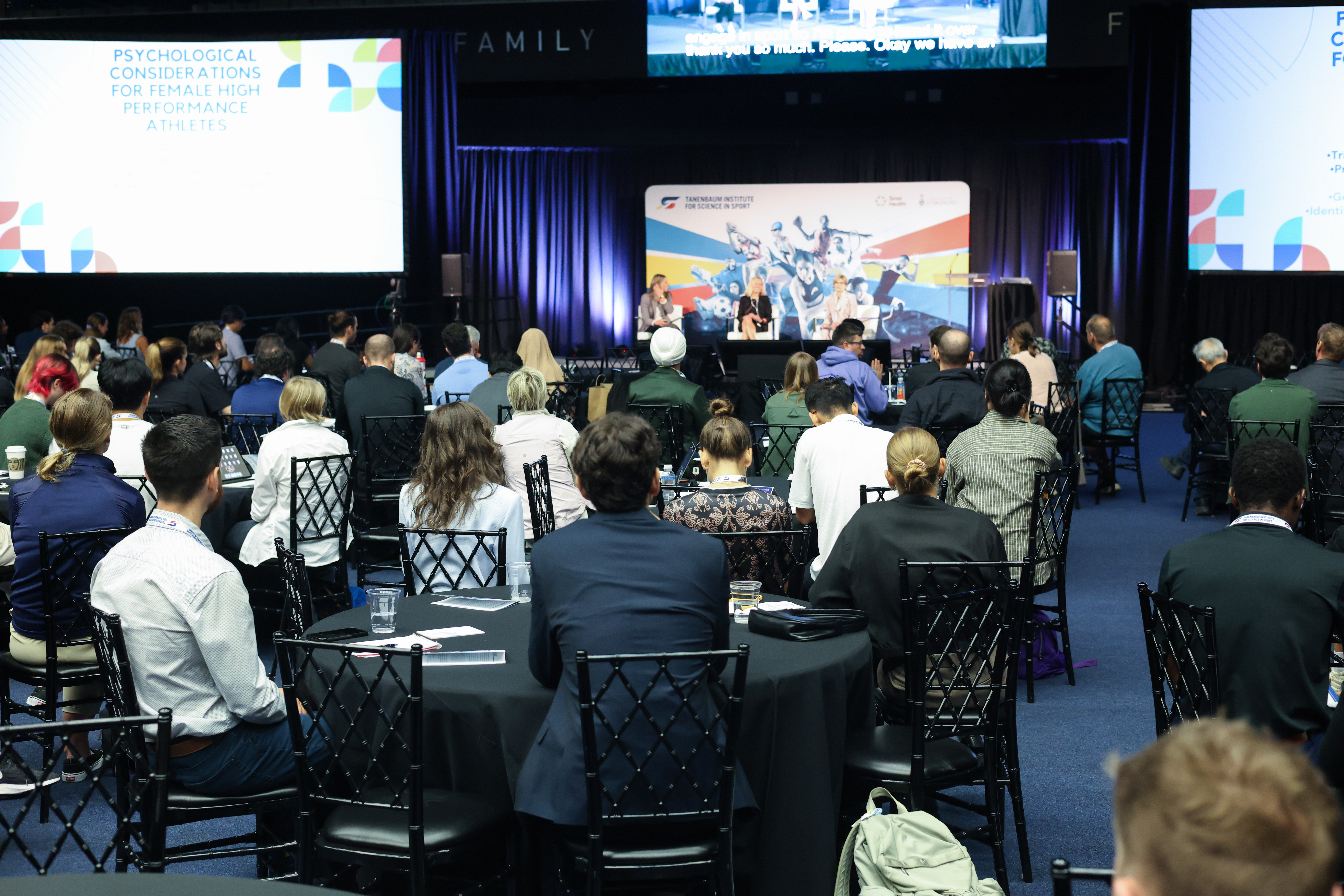
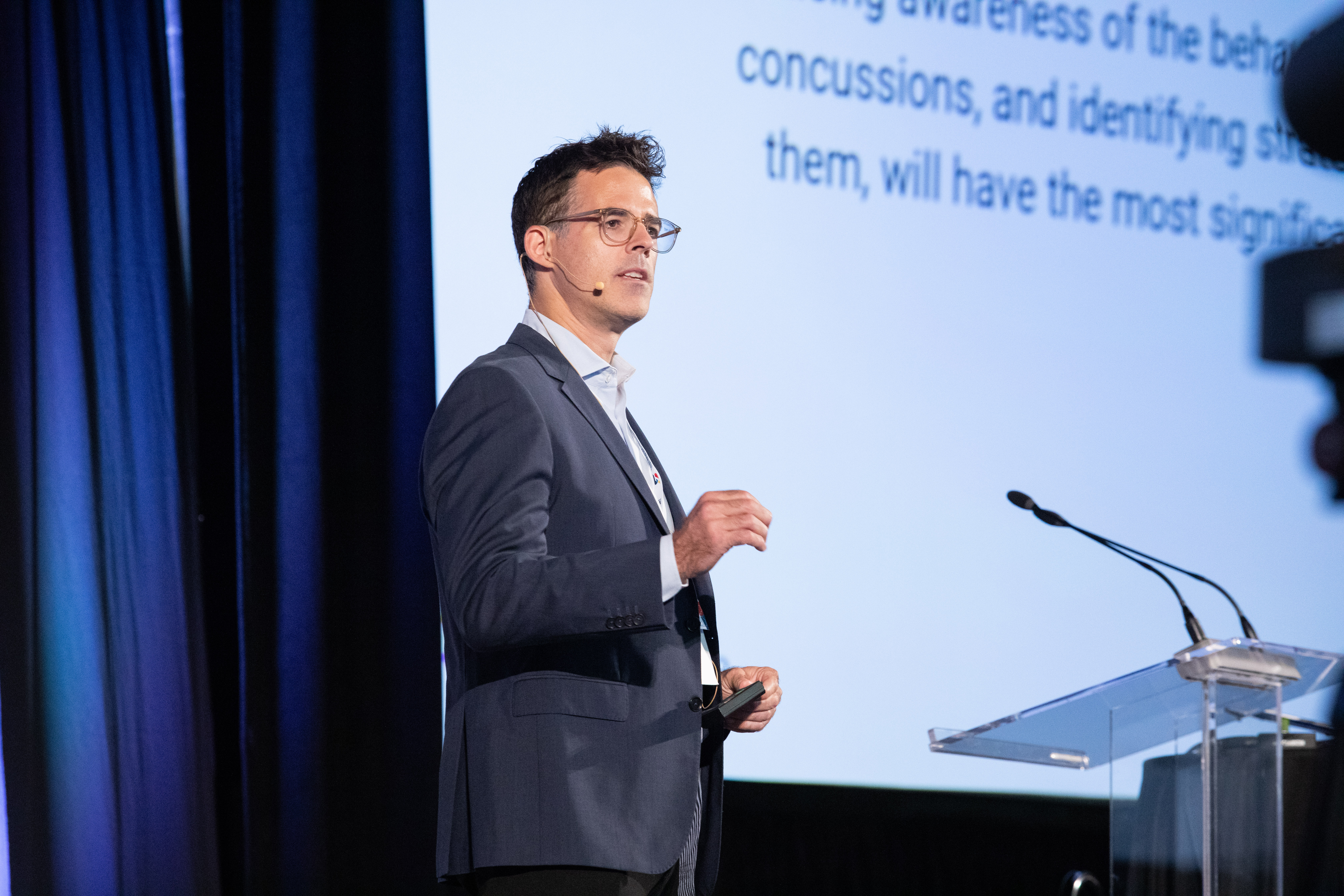
“The key benefit of this event was bringing groups of researchers, practitioners and other stakeholders together in a way that facilitated conversations that just don't happen outside the conference,” said KPE Professor Joseph Baker, chair in sport science, data modelling and sport analytics at TISS. “Working in high performance sport has some unique challenges due to complexities involved in the business of elite sport, the complicated process of athlete development, the unpredictability of athlete performance, and the social challenges of engaging people in sport at a time when rates of physical activity are alarmingly low.
“Improving these areas will only come through thoughtful engagement across these domains and I thought the conference did an amazing job of starting the conversations.”
Baker facilitated a panel discussion featuring some of the top thought leaders on young athlete development from around the world, who highlighted the complexity of this process and the challenges researchers and practitioners have in balancing the obvious benefits and potential risks.
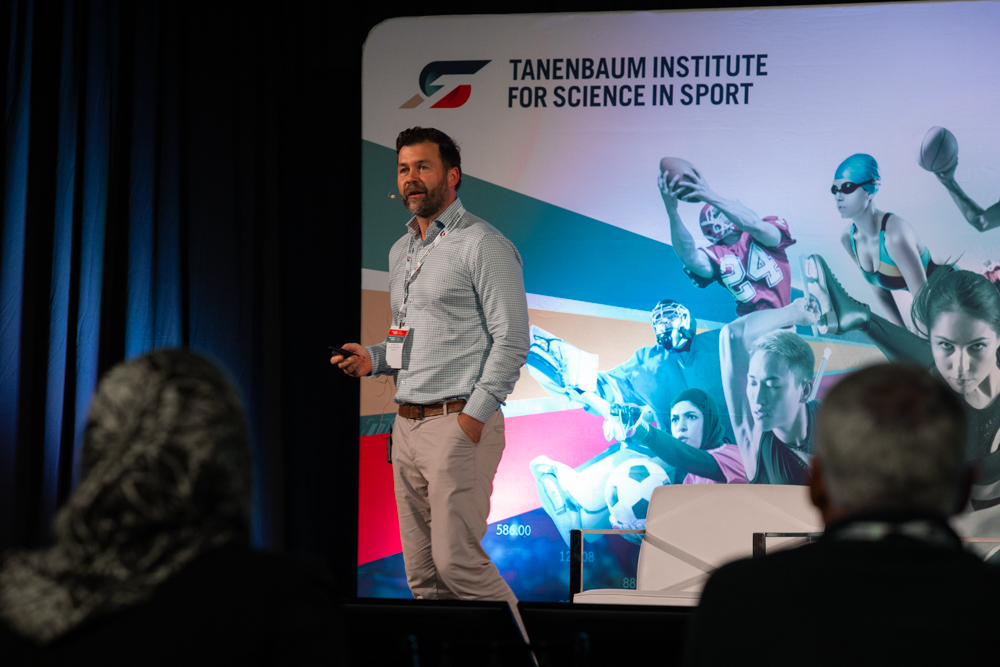
Sam Robertson, director of Track Consulting Group from Australia, presented on the opportunities for high performances sport in the age of AI.
“If AI can help us improve the prescription of how we train or stop us from being injured, then it's, of course, really valuable, but using AI also raises some ethical and legal questions - for example, who’s liable if AI makes a mistake?
“The reality is, we're all going to be better off if we collaborate more on these big problems and these kinds of gatherings offer such opportunities.”
Yannis Pitsiladis, a professor and head of the department of sport, physical education and health in the Hong Kong Baptist University, presented on some of the big issues in sport, including doping and integrating transgender and intersex individuals into elite sport.
“Sharing research in these kinds of settings is absolutely essential,” said Pitsiladis. “We saw during COVID when we couldn't attend conferences the impact that it had, especially on young people.
“The students whose poster presentations were displayed at this conference opened themselves up not only to conversations about their research – but also potential jobs.”
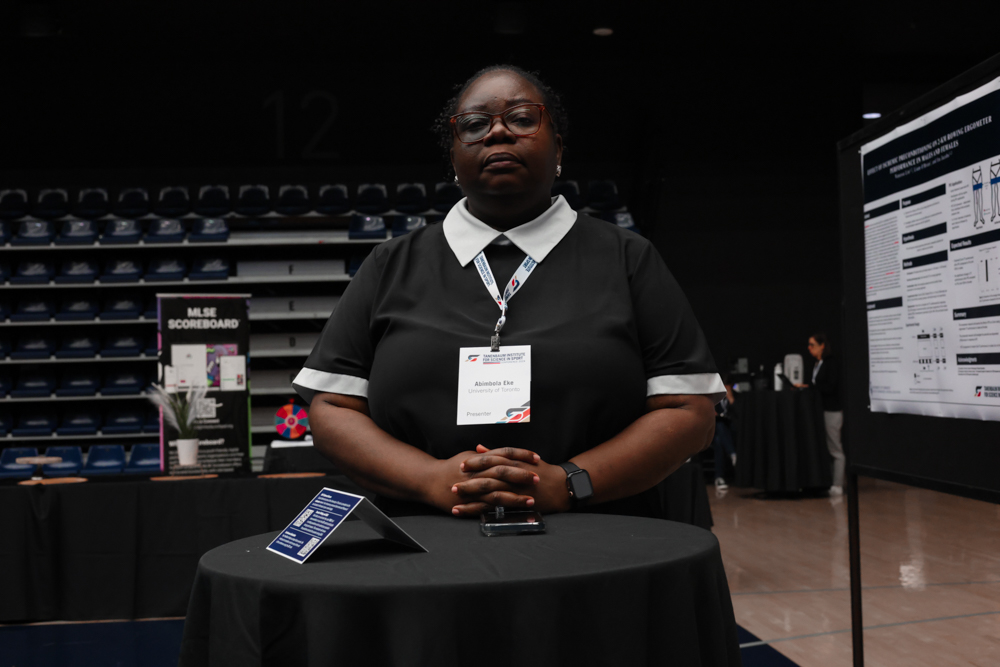
Case in point, Abimbola (Abi) Eke, a post-doctoral fellow working with Associate Professor Katherine Tamminen of KPE on a collaborative project with the Centre for Addiction and Mental Health (CAMH).
“We are working on a project to create Mental Health Champions in sport clubs and associations within Ontario, who can provide support, resources and education to youth athletes experiencing mental health challenges.
“It has been such a great opportunity for me to share the work we’ve done so far. A few people came up to me to ask me about the project and how we can support their sports and clubs, including a conference participant from Malaysia.”
Professor Gretchen Kerr, dean of KPE and member of the executive committee of TISS, said the knowledge shared and generated at this conference would support a broad spectrum of high-performance athletes that includes professional and non-professional athletes performing at the highest competitive levels - both able bodied and those with disabilities, as well as recreational athletes striving to achieve their own vision of personal high performance.
“This knowledge will be of interest to not only the research community, but also to the wider high-performance sport and athlete community,” said Kerr.
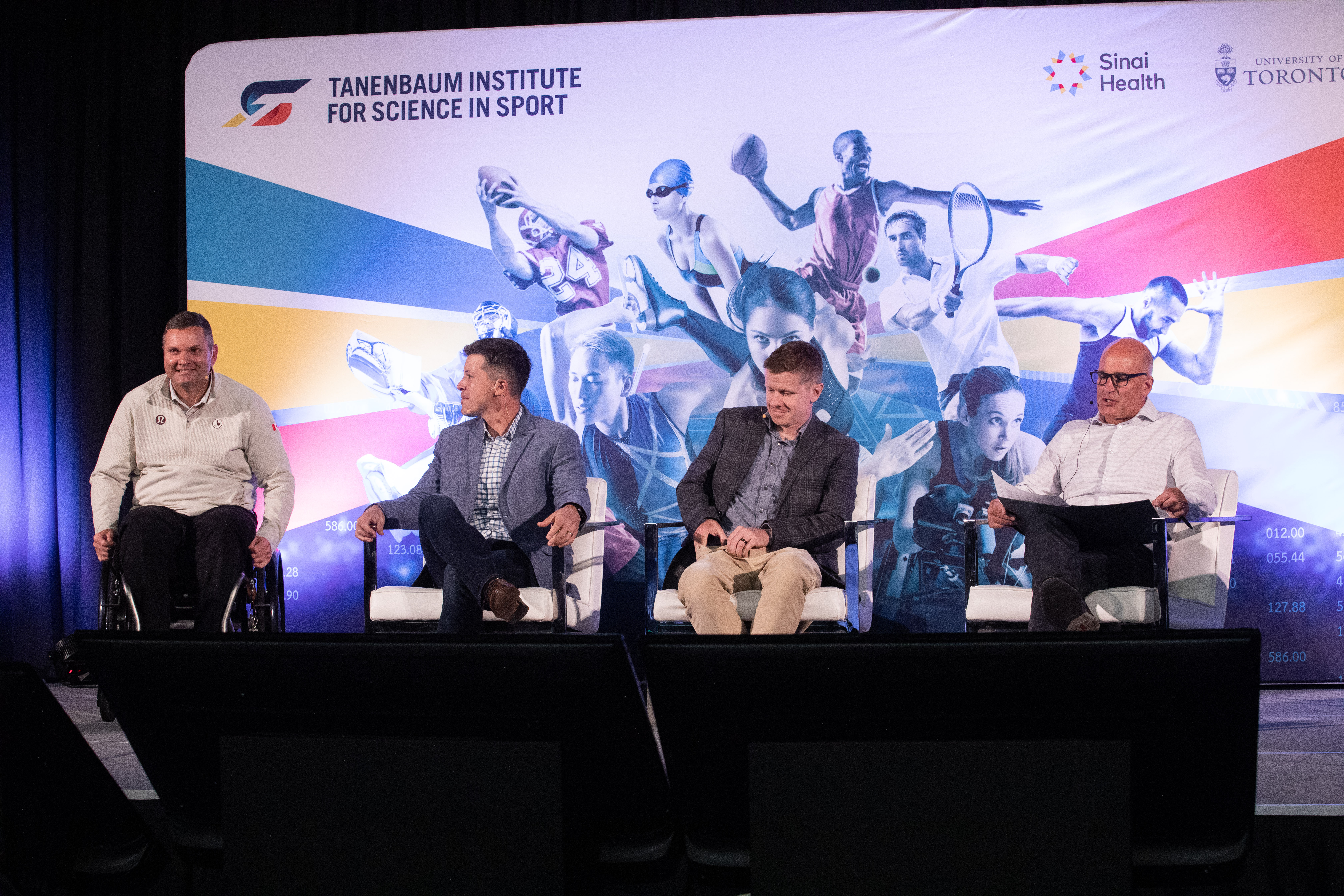
Kyle Paquette, director of the National Wheelchair Curling Program, echoed Kerr’s sentiment and said he hoped sharing some of the ways in which the wheelchair curling program has been able to optimize some of the partnerships they’ve had, may be of help to research institutions wanting to make their research more relevant, applicable and impactful in the sport community.
Paquette was part of a panel discussion on the big impact of small innovations, featuring Mark Ideson, three-time Paralympic medalist and World Champion in the sport of wheelchair curling, who shared some of the innovations he made to his wheelchair curling equipment, and Mick Lizmore, head coach of National Wheelchair Curling Program, who said, “all innovations benefit from athlete input.”
Even without all the evidence to prove it, this statement was unanimously accepted as the truth.
